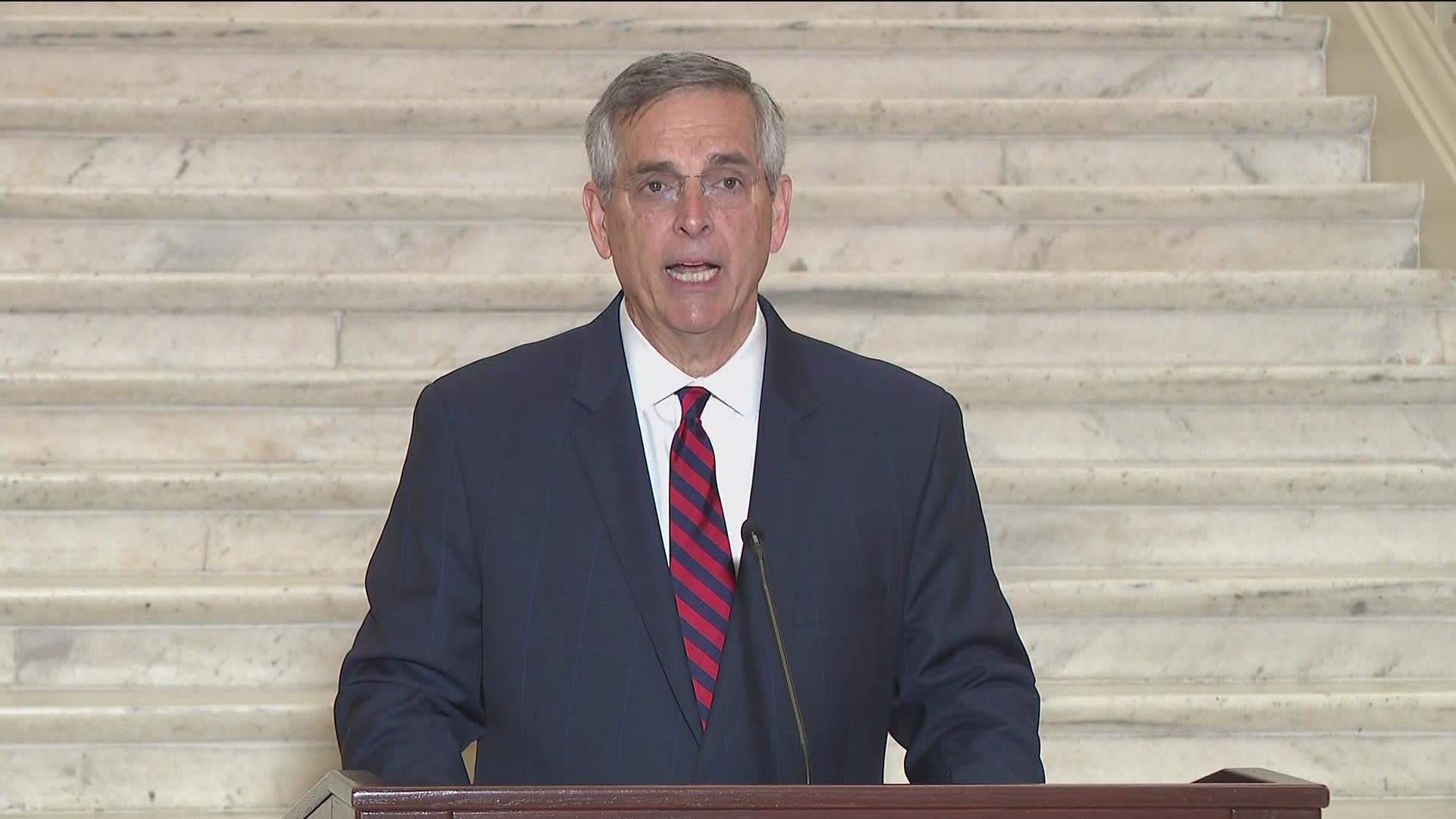ATLANTA — Georgia Secretary of State Brad Raffensperger announced Thursday that his own race would be the subject of the state's election risk-limiting audit to be performed next week.
The audit process is required by Georgia law for every even-year general election. The race to be examined is subject to the discretion of the Secretary of State's Office, with Raffensperger saying Thursday he chose his own race in the interest of transparency.
"I believe in transparency and accountability to voters, and that's why I've chosen this race," Raffensperger, who won his reelection race against Democrat Bee Nguyen with a little more than 53% of the vote, said.
In 2020, Raffensperger chose to audit the presidential race because of the contentious nature of that election. Because the margin of that race between President Biden and former President Trump was so close, the state conducted a full hand-count audit of all the ballots in the state.
With this year's race, state officials explained, the margin is much larger and so the sample of ballots that counties go ahead and audit can be much smaller.
State officials said auditing the Senate race headed to a runoff between Sen. Raphael Warnock and Herschel Walker would have required a similar effort to 2020. Nothing in Georgia law would prevent the secretary from choosing a race headed to a runoff, but nothing also requires the secretary to choose the closest race in the election.
Officials are hoping that, with the counties beginning their audits next Thursday, Nov. 17, they can finish by the next day, Friday Nov. 18.
The purpose of a risk-limiting audit is to sample random batches of ballots, count them by hand, and see if the results mostly align with the official machine-count election results.
"The audit will, with statistical confidence, show that the outcome of the election was correct," said state election director Blake Evans. "It will also show that the machines that tabulated the votes worked properly."
The confidence level the audit will need to meet is 95%, Raffensperger said, though state officials noted that because of human error in counting there will likely be small discrepancies between the hand-count tallies of certain batches and what the machine count found. Officials said the results of the audit would be published to the Secretary of State website, including with the ability to compare the hand-count numbers to the machine count numbers by county and batch.
The state will determine which batches are randomly selected by feeding a 20-digit number into the ARLO auditing system (which is used by Georgia and a handful of other states, including California). The state will bring media back to the Capitol next Wednesday, Nov. 16, to roll 20 different 10-sided dice to produce the number they'll feed into the system.
Evans said each county would audit at least two kinds of batches of ballots - one would be either an Election Day batch or early voting batch, and therefore be a ballot produced by the state's voting machines (also known as ballot-marking devices); the other would be either an absentee batch or a batch of Election Day provision ballots, which are both types of paper ballots filled out by hand.
Larger counties will, of course, have to audit more batches of ballots. Evans estimated that between 5%-7% of all the ballots in the state will wind up being reviewed.
Once the risk-limiting audit is complete, the state can work to certify the Nov. 8 election results by its deadline of Nov. 25.

